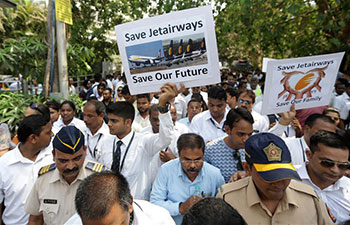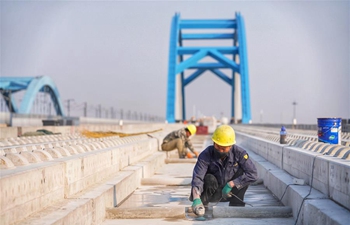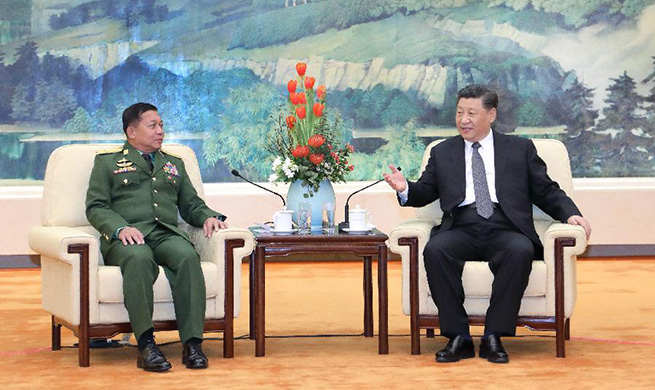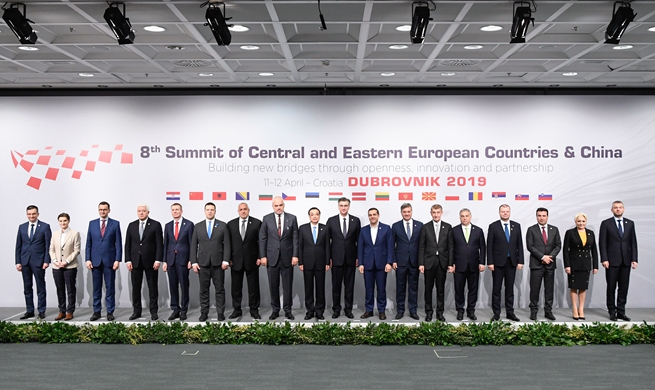WASHINGTON, April 12 (Xinhua) -- The International Monetary Fund (IMF) on Friday said the outlook for Asia-Pacific economic growth remains "relatively stable," but downside risks have increased, highlighting trade deceleration, higher oil prices and global financial market volatility.
"If the trade deceleration turns out to be more pronounced and longer-lasting, that will clearly affect growth in the Asia-Pacific region," Changyong Rhee, director of the IMF's Asia and Pacific department, said in a press conference at the Spring Meetings of the IMF and the World Bank.
Trade policy uncertainty could pose a renewed threat to growth, he said.
The IMF projects Asia to grow by 5.4 percent in 2019 and 2020, largely unchanged from its previous estimation in October, Rhee said, noting that the region continues to account for more than 60 percent of global growth.
The IMF on Tuesday revised up the 2019 growth projection for China to 6.3 percent, up 0.1 percentage point from its previous estimation in January, according to the newly released April 2019 World Economic Outlook.
Rhee told Xinhua that the upward revision reflected the combined impact of recent developments in the China-U.S. trade talks, China's stronger-than-expected expansionary fiscal policy, and a slowing global economy.
"China's larger-than-expected fiscal policy response will help offset the impact of weaker external demand," he said.
In Japan, the economy is projected to expand by 1 percent in 2019, and the IMF expects a gradual slowdown in growth to 0.5 percent next year.
In India, growth is expected to pick up to 7.3 percent this fiscal year, amid a more expansionary policy stance, Rhee said.
In wake of the downside risks, the IMF suggested Asian economies adopt agile, vigilant and prudent policies to navigate through the "swirling winds," he said.
"Macroeconomic policies should aim at stabilizing growth while ensuring sustainability and increasing resilience," Rhee said. "In parallel, financial policies should aim to address vulnerabilities from high leverage and build up buffers."
"Asia also needs to focus on policies to sustain its growth momentum over the longer run in the face of declining productivity growth and rapid aging," Rhee said.
That include labor and product market reforms, strengthening social spending to address rising inequality, and efforts to open up the region's economies further to trade, which could mitigate the risks from rising global protectionism and help boost Asia's resilience.

















